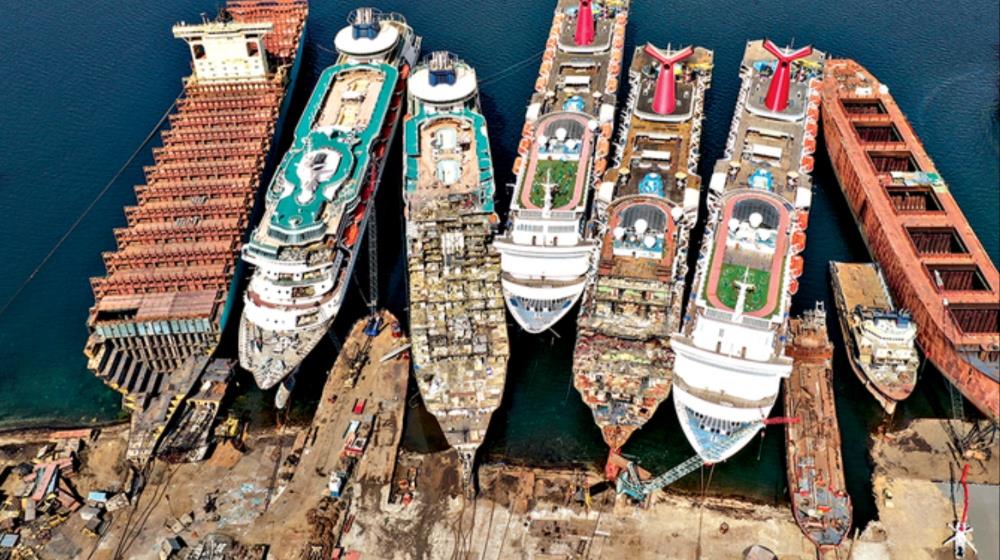With the rise of stringent environmental regulations, the shipping sector is facing the premature recycling of many vessels. While retrofitting with cleaner propulsion and efficiency solutions seems less attractive than new build orders, there is a pressing need for change.
Ioannis Efstratiou, the Deputy Ministry of Shipping’s Director of Safety and Environmental Protection, has shed light on the current shortcomings of the EU's Ship Recycling Regulation (SRR), advocating for its urgent development into a robust, effective, and sustainable policy.
A recent EU Ship Recycling Regulation review offers a significant opportunity to drive improvements that align with the regulation's original purpose – to prevent accidents, reduce injuries, and minimise negative environmental and health impacts associated with ship recycling in EU-flagged vessels – he said.
“According to a top BIMCO representative, 15,000 ships with a deadweight capacity of over 600 million tonnes could be recycled over the next decade,” Efstratiou explained. “The potential environmental and safety implications of this figure are substantial – pointing to the need for a dynamic approach to regulating recycling activity. Essentially, the importance of policies such as the EU SRR has never been clearer.”
As he explained, the EU SRR aims to prevent, reduce, and minimise accidents, injuries and other negative effects on human health and the environment, related to the recycling of ships flying the flag of European Union countries. Entered into force in December 2013, the EU SRR concerns all EU-flagged ships, of 500 gross tonnage or above. The only obligation ships from third countries have, however, is to maintain an Inventory of Hazardous Material (IHM) when calling at a European port or anchorage.
The European Commission launched an online public consultation on the evaluation of the EU SRR, which ran until June 7, 2023, and it may then launch a review of the regulation.
“Cyprus believes that this presents an important opportunity to address a significant shortcoming in the EU SRR – there is not enough approved and cost-effective recycling capacity to meet the requirements of the regulation, whilst preventing circumvention from provisions of the regulation,” said Efstratiou. “The current EU list is inadequate, especially large sea-going vessels, due to the length and draft constraints of certain listed shipyards and a lack of capacity due to increasing construction, retrofitting, and recycling of inland navigation vessels, fishing vessels and military ships. Capacity is constrained even further because these EU SRR-approved shipyards are used by non-EU flagged vessels.”
In addition to these challenges, the 2019 amendment to the Basel Convention, which regulates the Control of the Transboundary Movements of Hazardous Wastes and their Disposal, means EU-flagged vessels are banned from being recycled at facilities in countries that are not part of the Organisation for Economic Co-operation and Development (OECD) forum, he added. “Non-OECD recycling facilities are therefore currently de facto excluded from the EU list of approved facilities. These obstacles are encouraging some owners to reflag ships for their final voyage to avoid the EU regulations, sending them to recycling facilities in third world countries such as Bangladesh, India and Pakistan which are not approved by the SSR.”
The establishment of a European list of approved facilities with adequate capacity is therefore urgently needed. This list should contain facilities that meet the requirements of the EU SRR that includes geographically well-balanced facilities that can recycle large sea-going vessels, and guarantee sufficient recycling capacity that is reflective of the market.
“It is Cyprus’ position that EU Member States must take global responsibility by creating incentives and appropriate frameworks for sustainable recycling solutions for the long term in EU, OECD, and non-OECD countries,” said Efstratiou. “Cyprus is committed to improving working conditions while also supporting the economies of these third world countries. We believe that by defining the right criteria, we can achieve this while at the same time enabling ship owners to recycle responsibly within the framework of the EU SRR.”
To that end, Cyprus considers ratification of the Hong Kong Convention imperative, he said, as this will support the upgrade of more recycling facilities in third world countries.









